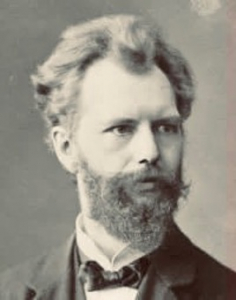#222– October 23, 2023

I.Moderato
https://youtu.be/VPrRGPsnSso?si=bkDPuMy_XeLT8UVz
II.Scherzo
https://youtu.be/aWjyTFbrfxo?si=7Y49QUgG1g7seDUE
III.Minuet.Grazioso
https://youtu.be/LEYTtDRBkHw?si=VUF21VoH6-8fPdMh
IV.Romance.Adagio
https://youtu.be/UDIaQslnGpA?si=33YY7tYwNTgVHi2V
V.Finale.Vivace
https://youtu.be/argcmSif0L8?si=CwUc2AwHLw9Oz3Kh
Serenade in F, Op. 102 by German composer, pianist and conductor Wilhelm Reinhard Berger is our Composition of the Week.
Serenade was composed in 1910 and has a duration of 24 minutes.
It is scored for 2 flutes, 2 oboes, 2 clarinets, 2 bassoons and 4 horns.
The date of the first performance is unknown.
Berger was born in Boston, USA, but raised in Germany. He began his musical career as a concert pianist. As a composer, he was often associated with the “Berlin academics” who were known to emulate Brahms, stylistically, even though it almost hints at the later works of Max Reger (who was to become Berger’s successor as Meiningen Kapellmeister) through its preference for dissonant harmony and counterpoint techniques.
Berger was a prolific composer – his oeuvre numbers well over a hundred works. The Piano Quintet, Op. 95, the Second Symphony and the late compositions for choir are generally considered to be his masterpieces. Long after his death, his work was rated very highly, particularly among musical conservatives.
Though written only 25 years after Strauss’ two works for this instrumentation (except for the double-bassoon) it remains a relatively unknown work.
Berger died the year after he composed the piece, without ever having heard the premiere.
“The work is composed in five movements, which was unusual for this time. The first movement contains very tuneful writing, featuring an oboe solo and impressive horn quartet writing. The second movement, “Scherzo”, has great flute and clarinet parts, which are very technical, spirited and joyful. The minuet explores several emotional areas, while the romance – adagio opens with a very mournful horn solo. The concluding rondo in F major has great spirit and includes a lively fugato. This is a very worthwhile composition that deserves your attention.” (Program notes by Rodney Winther)


